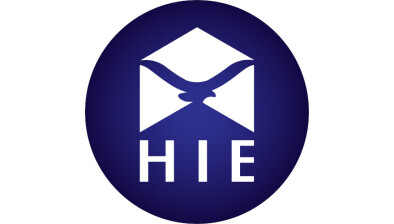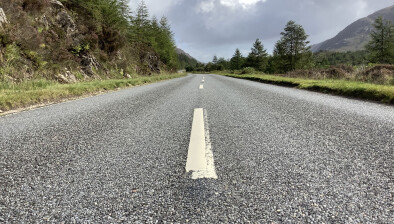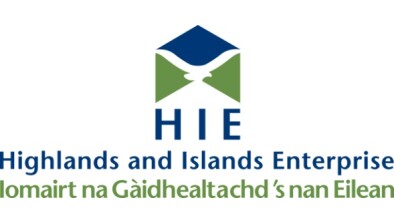Councillors welcome Highlands net zero progress

Members of the Highland Council’s Climate Change Committee have welcomed continued progress across a range of projects within the council’s Net Zero Programme, alongside the approval of four new initiatives to further accelerate action towards a climate-resilient and sustainable Highland.
At the meeting, updates were provided on key areas of delivery under the Built Estate & Energy and Social Housing & Housing Revenue Account (HRA) workstreams, highlighting the scale of improvements being made to reduce emissions and improve energy efficiency across Highland communities.
Councillor Kate Willis, chair of the Climate Change Committee, said: “The council’s Net Zero Programme has many projected long-term benefits, and I’m pleased to see our services working more closely with the Climate Change and Energy Team. Effective cross-service collaboration allows us to deliver projects that not only support our Net Zero ambitions but also bring real benefits to Highland residents.”
Delivering Area-Based Retrofit and Community Benefits
The Social Housing and HRA Thematic Group reported substantial progress in delivering area-based retrofit projects and maximising external investment through a groundbreaking blended funding model developed by the council’s Climate and Energy Team.
Under the Net Zero Energy Investment and Innovation Portfolio, part of the council’s Our Future Highlands – Delivery Plan, the Climate and Energy Team has pioneered a blended funding approach that combines contributions from multiple national and regional funding streams.
This innovative model enhances the delivery of capital projects and has successfully secured over £11 million in additional external funding to improve the energy performance and comfort of tenants’ homes across the Highlands — while reducing overall costs to the Council.
Key project highlights include:
- Caol Retrofit Project – 79 properties (30 council-owned and 49 private) upgraded with external wall insulation, air source heat pumps, and solar PV systems. Community benefits included 12 “Talking Tub” educational resources donated to Highland primary schools to support early years learning on energy and construction, with two Caol schools directly benefitting.
- Balintore Mixed Tenure Retrofit – 75 properties (65 council, 10 private) improved through 50% external funding, reducing costs to the council and improving living conditions. Community benefits included energy-efficient lighting for the Seaboard Memorial Hall and new safe fencing for the Balintore junior playpark.
- Balintore Full Retrofit – 51 council homes received full upgrades, including insulation, new roofs, and renewable heating systems, alongside solar panels installed at the local Scout Hall for community use.
- D-C Highlands – A £9.2m Energy Company Obligation-funded initiative, with 642 energy efficiency measures completed to date across 302 Council properties.
Cllr Willis added: “I visited the Caol retrofit project last year and was able to see directly the benefits of these projects and how area-based retrofits deliver meaningful carbon savings, lower energy bills for residents, and improve housing quality. The Climate and Energy Team’s innovative funding approach has attracted millions in additional investment, allowing us to deliver more improvements, reduce emissions, and tackle fuel poverty while supporting healthier, more resilient communities.”
Embedding Climate Action Across Council Decisions
The Committee also received an update on the Climate Change Impact Assessment (CCIA), introduced in July 2024 to ensure all council proposals are assessed for their impact on emissions, biodiversity, and climate resilience.
Cllr Willis said: “The council’s Net Zero Strategy sets out a clear commitment to embed climate change considerations into every aspect of decision-making. The Committee has agreed to strengthen the implementation and effectiveness of the CCIA to ensure climate impacts are always visible and understood at the point of decision.”
New Projects Approved
Members also agreed to recommend approval of three additional projects for inclusion in the Net Zero Programme:
- E-Bike Charging Infrastructure – Installation of safe, reliable, and accessible e-bike charging points at the council’s Inverness headquarters to support low-carbon staff travel.
- Highland Climate Change Risk & Opportunity Assessment – A regional study led by Highland Adapts to identify and prioritise climate-related risks and opportunities, informing future Council strategy and corporate risk planning.
- Nature Restoration Fund – £600,000 allocated to support projects that restore nature, safeguard wildlife, and address biodiversity loss.
- £300,000 for community-led projects and organisations
- £300,000 for council-led initiatives, including woodland management, a new Local Nature Reserve in Ardersier, grassland restoration, and the development of Nature Networks
Heat network plans for Inverness
Plans to develop city-wide heat networks in Inverness have also taken a further step forward following an update to members at the meeting.
A strategic heat network feasibility study, completed in May, identified four priority zones in areas of higher energy demand: West Bank, Raigmore, Longman and the city centre. A supporting vision statement has now been drafted, outlining the role of heat networks in supporting Inverness’s decarbonisation goals and the Council’s wider objectives for affordable, sustainable energy.
Cllr Willis said: “Heat networks can offer more sustainable and affordable heating by reducing carbon emissions and energy costs, bringing long-term benefits for our communities. The feasibility study highlights the significant opportunity to decarbonise heat across Inverness, and we are now exploring how these networks could be delivered.”
Following completion of the delivery model assessment, the council is now actively engaging with developers and investors to explore delivery opportunities and partnerships that could enable the rollout of heat networks across the city.
Cllr Willis added: “This work has been critical in shaping the project’s direction. We will now carry out further analysis to inform decisions on investment and engagement and will hold a member workshop to review progress and next steps.”
Additional funding has been secured to support the next phase of work, aligned with the council’s Heat Network Development Programme and Local Heat and Energy Efficiency Strategy (LHEES) – a statutory plan setting out how carbon emissions from heating buildings will be reduced across the Highlands.
Heat networks, also known as district heating, supply heat from a central source to multiple buildings such as homes, schools, and offices. By sharing heat efficiently rather than relying on individual boilers, they can help reduce energy bills and cut carbon emissions.

















